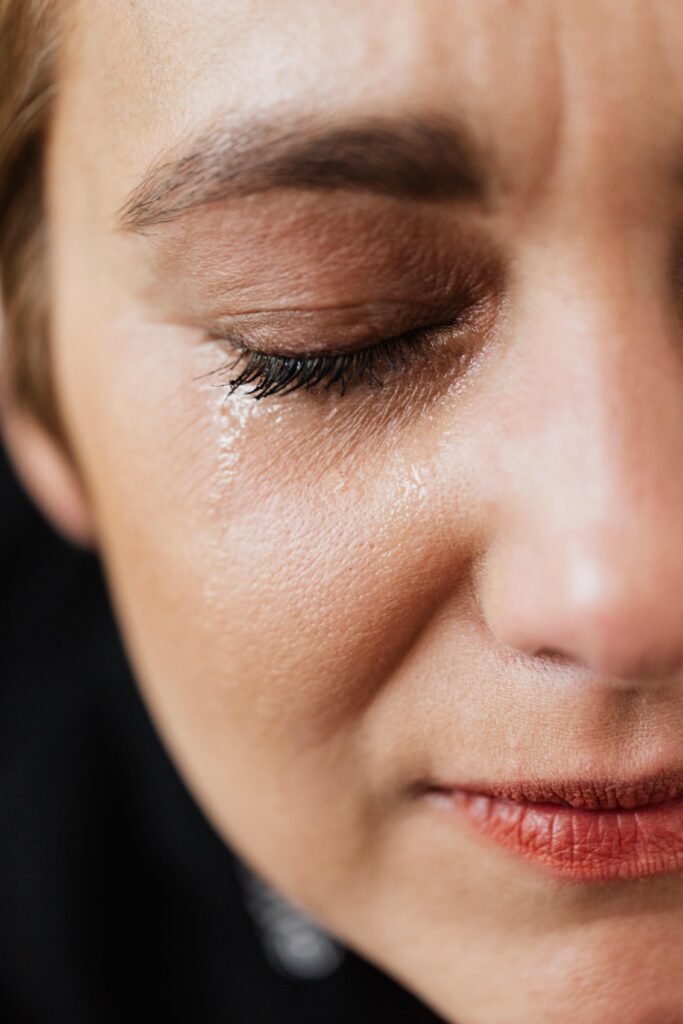Smile and the whole world smiles with you…Right?
Sadly, society is not always kind when it comes to grief and bereavement. Death makes us uncomfortable. We shy away from talking about it, that evil inevitable thing that lurks in the shadows. As newly bereaved we force smiles, we force those grins and even laugh as that uncomfortable knowledge becomes part of your life.
Truth is we all die. We don’t always get to choose when and some deaths are so unfair, it cripples us in shock and despair for a long time, such as child deaths, accidents, foul play etc. Some deaths are more ‘acceptable’ like old age, but does that mean your grief should diminish or have an acceptable ‘timeframe’ just because the death is accepted by society?
There I’ve said the dreaded ‘D word. And it’s okay to say it.
Dead. Dying. Death. Deceased.
Someone you love has died. They have gone, and they are not coming back, in this life, if you believe in re-incarnation, as a ghost if you’re a spiritualist, they have gone back to the earth if Atheist.
Whatever you believe, (or not) in the end, it doesn’t matter. They are dead and you are dealing with it every day. You may be lucky and have an amazing family and friends around you who will continue to support, nurture and care for you for as long as you need, but sadly, so many clients I work with have told me the same stories. Do any of these resonate?
‘They were great…In the beginning, but after the funeral, they disappeared…’
‘My friend just pretended not to see me…I feel invisible…’
‘They actually crossed the road so they didn’t have to talk to me…’
They told me I have to ‘get over it’ or people will think I’m mad…’
‘My boss said I had to ‘pull myself together’; it was only a divorce, not a death’…
‘I am being judged by my family. They keep comparing me to that other widow down the road…’
‘I don’t feel I can mention my grief anymore…It’s been a few months now, so nobody ever asks me about it…’
‘I cry in secret, when the kids have gone to bed, so everybody believes I’m ‘over it’…But I’m not’.
‘I loved that house, I’ve lost everything, but nobody cares, it wasn’t a death, only a fire…’
‘When my pet died, nobody understood. ‘It was just a pet’, but to me, it was my fur baby and I can’t stop crying. I miss them so much, but I daren’t tell anyone…’
‘It’s like the funeral was their ‘end game’. Right that’s that, now back to normal…’
‘I have to put on a brave face, for the kids, for work, for my family etc…’
If any of these scenarios’s sound familiar, I hear you. Society has made grieving people a pariah in many circumstances, and though friends, family and colleagues have kind intentions, the pull of ‘life’ inevitably grabs their attention.
‘They don’t want to be sucked into the low energy of grief. They want to continue enjoying life, because if nothing else, death reminds them that time is ticking…’
The truth is it takes courage to keep grieving. It takes lots of energy. It takes a lot of time. It takes your attention from life, for a while, but if you’re not on other people’s ‘expectations of grief, time-wise’ then there is a miscommunication, your energies won’t mesh and they will either run or withdraw, as it is incredibly uncomfortable.
This is NOT your fault. It is THEIR perception, but it is YOU who is suffering because of it.
So, what can you do?
· Be Honest. If you’re still grieving after the funeral, after three months, after a year — Speak up — they are not mind readers. They will see what they want to see, and if they see a smile, they will assume all is ok.
· THAT DOES NOT MEAN YOU MUST NEVER SMILE AGAIN — It can be difficult to smile, laugh, enjoy something following a death, and guilt and shame are normal feelings to have (If you do) however, it is important to be honest — (please see above)
· Work through your grief with a professional — If your grief is pulling you down consistently, then talking it through with a professional that you click with can be very helpful. A safe place to release those feelings and explore what is happening for you deep down.
· You do not have to ‘put on a brave face for anyone.’ Especially children. Your children need to learn that grieving is ok. They learn by watching adults. If they see adults swallowing down their grief, pretending everything is ok; this becomes learned behaviour and continues in life. Show them how to be human and feel their emotions.
· Forgive them. Forgive yourself. They can’t help behaving the way they are, no more than you can. Be honest, when someone you know was grieving, how long did you stick around? Did you know they continued grieving? Of course not. Life continues, and people inevitably either hide their grief to ‘fit in’ or they wallow in it, hiding away from society. This is NOT a blame or shame thing to say, it just is and can be a shock upon realisation.
· Many people just don’t know what to say. They are afraid of causing upset, making you cry etc. The truth is you are already upset. You are already crying. See point number one — Be honest…And open. Tell those around you where you’re at on your journey. ‘I might start crying, but I prefer to just get on with it alone’ ‘I’m really struggling right now, can I call you if I need to offload?’ ‘I’m okay most of the time, but I have good and bad days. Can you ask me when you see me if I’m black or blue — black for bad day, blue for okay day?’ Etc
· Remember, these are your friends, family, companions, and colleagues. They have been in your life for a reason, usually because they care about you, like you, love you, and work with you. Remember these are human beings. We all make ‘mistakes’ when we don’t understand something. Be kind to yourself, and each other.
· If they don’t get it, or don’t want to be involved, thank them for their time with you and let them go. Find those who are willing to walk WITH you on this grief journey. The others will either come around again, or they were not meant to remain in your life. You have enough to deal with without worrying about others.
I hope this gave you some insight and you found something within the page that gave you an ‘aha’ moment.
Paula x

